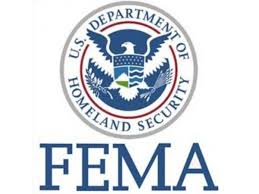 AUSTIN, Texas — Disaster survivors need to protect themselves. Criminals know that people are vulnerable after events like Hurricane Harvey, and they devise schemes to take advantage.
AUSTIN, Texas — Disaster survivors need to protect themselves. Criminals know that people are vulnerable after events like Hurricane Harvey, and they devise schemes to take advantage.
Two common types of post-disaster schemes are building contractor scams and rental property scams. Learn how to avert those schemes by visiting https://go.usa.gov/xEVgp and https://go.usa.gov/xEEKM, respectively.
Illegal activity associated with a disaster, though, takes many forms. See below for tips on how to avert some common schemes:
- Price Gouging: Excessively raising prices on essential goods and services because of a disaster or severe weather is illegal. If you are unfairly charged for items like water, food, fuel or lodging, speak with the manager. If you are unable to resolve the issue with the manager, write down details and take photos, if applicable, then report the incident to local law enforcement
- Fake Charities: Phony nonprofits may seek donations through unsolicited emails or telemarketing calls. Be on the lookout for charities whose names sound similar to — but not quite the same as — real charities. You can trust nonprofits approved by the Better Business Bureau’s Wise Giving Alliance, found at www.give.org.
- FEMA Imposters: Scam artists may pose as representatives of FEMA or other federal or state agencies to try to gain access to your home, money or personal information. If you receive a call about FEMA assistance, don’t provide any personal information except your FEMA-issued registration number. If someone shows up at your home, request to see a FEMA-issued photo ID badge, and do not give them any money. Do not accept FEMA clothing as proof of identity.
- Utility Repairs: People may pose as workers for electric or other utilities and call, email or visit your home after a disaster. These imposters often ask for immediate payment and threaten to turn off your service. Don’t provide payment information unless you are certain who you are dealing with. When in doubt, end the conversation and call back at a number you know is valid.
- Quid Pro Quo: Don’t pay up front for a promise. Scammers often will ask you to pay in advance for things like debt relief, credit or loan offers, mortgage assistance or a job. They might even say you’ve won a prize, but first you have to pay taxes or fees. If you do, they will probably take the money and run.
- Damaged Vehicles: Shady dealers may try to sell hurricane-damaged cars or trucks without disclosing they have been in a flood. Use the National Insurance Crime Bureau’s online VINCheck program to see if the vehicle you’re thinking of buying has ever been declared as “salvage” or a total loss by an insurer: www.nicb.org/how-we-help/vincheck. Insurers representing about 88 percent of the personal auto insurance market provide data to the program.
Above all, do not give out any money or personal information unless you feel confident doing so. If you are in doubt, search the internet, speak with people you trust and contact local law enforcement. Con artists want you to make decisions in a hurry. Slow down and check out their story.
If you suspect fraud or other illegal practices, contact your local law enforcement agency. Also please inform FEMA by calling 800-621-3362 or TTY 800-462-7585, and contact the Texas Office of the Attorney General by calling 800-621-0508, emailing consumeremergency@oag.texas.gov or visiting www.texasattorneygeneral.gov.
For additional information on Hurricane Harvey and Texas recovery, visit the Hurricane Harvey disaster web page at www.fema.gov/disaster/4332, Facebook at www.facebook.com/FEMAHarvey, the FEMA Region 6 Twitter account at www.twitter.com/FEMARegion6 or the Texas Division of Emergency Management website at www.dps.texas.gov/dem

